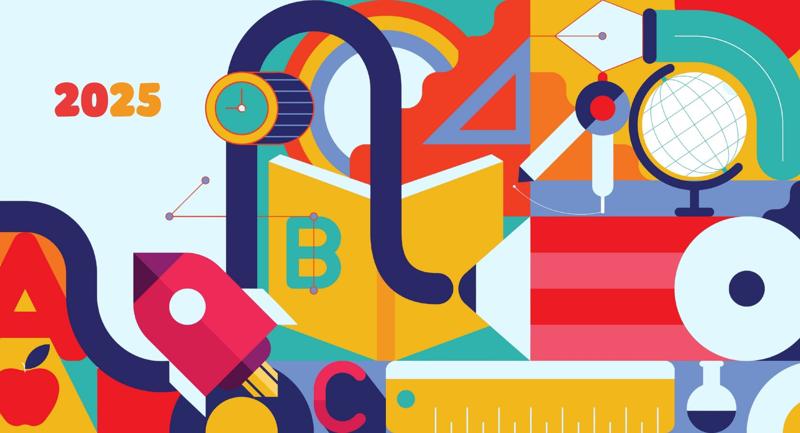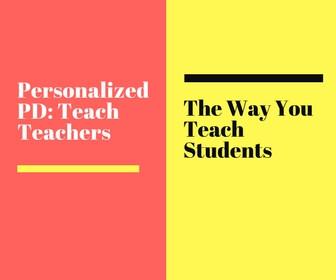“We need to turn our focus to what we can do to have new teachers fall in love with the profession,” says Glenda Horner, director of professional development for Cypress-Fairbanks Independent School District in Texas. With 90 schools educating more than 100,000 students, Cypress-Fairbanks is always hiring. But with the effects of the pandemic, the district’s approach to supporting new teachers has had to evolve. In the following interview, Horner shares how the district is ensuring that new teachers have access to both strong mentors and “grab-and-go” professional learning—a necessity for early career educators.
How, if at all, has Cypress-Fairbanks’ new teacher induction program changed since the pandemic?
Pandemic challenges have made us go back to the table. We have to rethink how we offer supports to teachers. For me personally, reshaping and rethinking new teacher induction really came to light when my daughter was going through her first year of teaching in 2018. Whenever you have somebody close to you actually walking it and experiencing it, it makes you hit the pause button and reflect just to ensure that you're offering the right level of support for all teachers. Like any new teacher, my daughter struggled with classroom procedures and routines—and just being there and offering an ear was sometimes the best I could do.
This realization led us, as a district, to focus more fully on our lead mentor model. Because we are such a large district, my office is responsible for providing resources and support to what we call our lead mentor (a volunteer position offered to teachers as a leadership opportunity). That lead mentor is responsible for matching teacher mentors and mentees, and also for passing on any resources or materials that have been targeted toward our new teachers.
To better support our teachers, we provide the lead mentor with better resources so that they can host and facilitate share sessions—special meetings where mentors and mentees can explore ideas—on an ongoing basis. This ensures constant communication and conversation, providing just-in-time supports for our new teachers. In other words, when we go back to the work of Ellen Moir (former CEO of the New Teacher Center), we follow what she refers to as “phases of first-year teaching,” which are anticipation, survival, disillusionment, rejuvenation, and reflection. All the supports we provide our lead teachers are based around these phases of first-year teaching: Knowing which phase that teacher is and providing that teacher with the needed support at the right time.
The right kind of professional learning is not pushed on teachers.
Glenda Horner
Based on your observations, have the needs of new teachers changed over the past few years?
The needs are always changing. We like to talk about opportunities versus challenges. In the last couple of years, our kids have been transitioning back to a live classroom setting. Sometimes, as educators, we have to go back and rethink the things we take for granted, those procedures that were easier pre-pandemic. For example, there has been a more concerted focus on classroom management pieces in induction programs because we have to reteach our students how to socialize.
Another important change in the last few years has been our shift from providing only in-person learning opportunities to giving educators the option of in-person or virtual learning. This has helped new teachers access more learning than ever before.
What kind of professional learning do you think could better equip new teachers to feel more prepared on day one?
The right kind of professional learning is not pushed on teachers. ASCD’s Activate platform, for one, has allowed us to have a tool where new teachers, and all teachers for that matter, can pull what they need when they need it. Pushing something at teachers might mean that you're inviting them to come to a face-to-face setting for a learning opportunity or inviting them to an online class and not have it be relevant to all attendees. We found that pushing this kind of professional learning is not effective; teachers’ needs vary widely and are dependent on individual circumstance. But Activate has allowed us, even pre-pandemic, to provide a repository of resources so our folks can pull what they need when they need it, instead of having it pushed on them. It is an excellent platform for tailoring learning to fit the needs of each teacher, especially those new to the profession. It’s that idea of pulling versus pushing material on teachers.
What are some often overlooked supports for first-year teachers that you've found to be critical to strengthening their efficacy—and keeping them in the profession?
One overlooked diamond in the rough, at least for us, is providing teachers an opportunity to observe other teachers, to be able to push into a classroom and to be able to see instruction unfold—and, better yet, having that teacher unpack and debrief the observation afterward (when free periods coincide) in a one-on-one share session. I think implementing these observation sessions was one of the most effective things I was able to do when I was a school administrator.
Another overlooked support is having a repository of video content on different things that teachers may be struggling with. So, if I'm struggling with opening procedures, then maybe there are a couple of go-to five- or six-minute videos aligned with that topic. What we're overlooking is quick grab-and-go PD, going back to the idea of pulling it versus pushing it on teachers. We’re at a tipping point right now: we need to turn our focus toward what are we going to do to help new teachers fall in love with the profession.
This interview has been edited for space.








